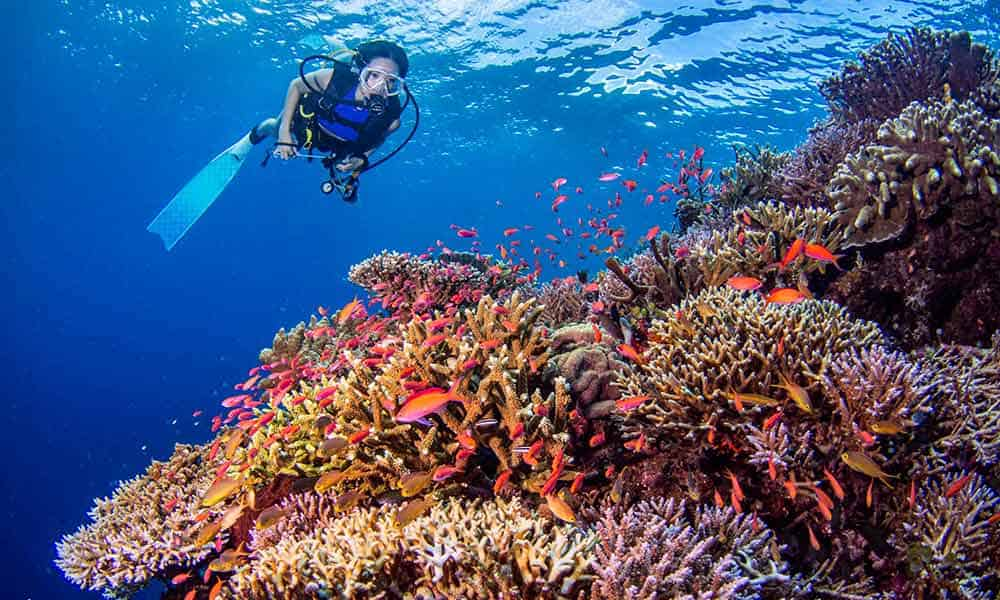
Participating in reef health surveys is a vital initiative aimed at safeguarding marine ecosystems. By engaging in these surveys, individuals can contribute to the understanding and preservation of coral reefs, which are critical for biodiversity and the health of our oceans. This article explores the significance of reef health surveys, how to get involved, and the impact of your contributions on marine conservation efforts.
Why Reef Health Surveys Matter
Coral reefs are often referred to as the “rainforests of the sea” due to their rich biodiversity and ecological importance. They provide habitat for countless marine species and act as natural barriers protecting coastlines from erosion. Unfortunately, reefs face significant threats from climate change, pollution, and human activities. Reef health surveys are essential to monitor the status of these environments and identify changes over time. By collecting data on reef conditions, scientists can develop effective conservation strategies and mobilize resources effectively. These surveys also raise public awareness about the fragility of marine ecosystems and advocate for protective measures.
How to Participate in a Reef Health Survey

Getting involved in a reef health survey can be an enriching experience for anyone passionate about marine conservation. Here are a few steps to participate:
-
- Research local initiatives: Look for organizations or programs in your area that conduct reef health surveys. Many universities, research organizations, and conservation groups regularly organize such events.
- Pay attention to training requirements: Familiarize yourself with any prerequisites for participating. Some surveys may require a background in marine biology or completion of a training course.
- Gather necessary gear: Ensure you have the appropriate equipment, such as snorkeling gear, underwater cameras, or measurement tools, if needed.
- Volunteer your time: Many surveys rely on the commitment of volunteers. Offering your time can significantly contribute to the success of these efforts.
- Stay updated: Follow updates from the organizations you engage with to learn about ongoing projects, survey dates, and any new research findings.
By taking these steps, you can make a substantial impact on the health of coral reefs and contribute to global conservation efforts.
The Impact of Citizen Science

Citizen science plays a crucial role in improving our understanding of reef ecosystems. When volunteers participate in reef health surveys, they not only collect valuable data but also become advocates for marine conservation in their communities. This grassroots involvement helps bridge the gap between scientific research and public engagement. By educating themselves and others about the importance of healthy reefs, citizen scientists enhance awareness and drive positive change. Furthermore, the data collected through these surveys contribute to larger databases used by researchers and conservationists globally, creating a more comprehensive understanding of reef health trends.
Reef Health Indicators

Understanding the health of coral reefs involves assessing various indicators that reflect their status. Here are some key indicators commonly monitored in reef health surveys:
- Coral cover: The percentage of the reef covered by live coral is a primary indicator of reef health.
- Fish populations: The diversity and abundance of fish species can indicate the overall condition of the reef ecosystem.
- Water quality: Measurements of clarity, temperature, and nutrient levels provide insights into environmental stresses affecting reefs.
- Presence of threats: Documenting signs of disease, invasive species, and pollution helps evaluate the pressures on coral reef systems.
By monitoring these indicators, researchers can assess changes in reef health and respond to threats more effectively.
Call to Action: Join the Movement
As individuals, we hold the power to influence positive change for coral reefs through our actions. Whether you are a seasoned scuba diver or a casual beachgoer, participating in a reef health survey can be an impactful way to protect marine ecosystems. Encourage friends and family to join you and spread the word about the importance of reef conservation. By fostering a culture of awareness, we can inspire collective action. Additionally, support local conservation organizations through donations or volunteering, which helps ensure the sustainability of ongoing research and restoration efforts. Remember, small actions can lead to significant impacts, and together, we can make a difference.
Conclusion
Engaging in reef health surveys not only empowers individuals to contribute to the conservation of marine ecosystems but also creates a community dedicated to protecting our oceans. These surveys provide vital data that informs conservation strategies and fosters public awareness about the importance of coral reefs. By participating, you can play a crucial role in preserving these beautiful underwater habitats for future generations. Together, let’s take action to protect our coral reefs and ensure the health of marine ecosystems worldwide.
FAQs
A reef health survey is a systematic assessment of coral reef ecosystems, focusing on factors such as coral cover, fish populations, and environmental conditions to gauge the overall health of the reef.
2. How can I find local reef health surveys to participate in?
You can research local conservation organizations, universities, or marine research institutions that offer reef health survey programs and volunteer opportunities in your area.
3. Do I need any special training to participate in a reef health survey?
While some programs may require specific training, many organizations offer introductory training sessions for volunteers interested in participating in reef surveys.
4. Can I participate in reef health surveys as a beginner?
Yes! Many organizations welcome beginners. They typically provide training and tools to help you learn about reef ecosystems and how to conduct surveys.
5. What are the benefits of participating in a reef health survey?
Participating in a reef health survey allows you to contribute to vital marine research, gain a deeper understanding of coral ecosystems, and advocate for environmental conservation in your community.
